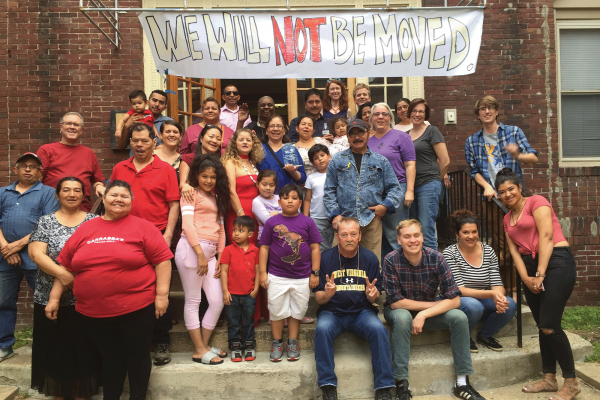FIDEL WAS FOUR years old when I met him in 2014. His family lived in an apartment building around the corner from us in Washington, D.C. He liked to fly around the apartment entryway with arms extended, making airplane sounds. He liked to say “no.” He played with toy cars during tenant organizing meetings.
Fourteen families shared the 26-unit building, which had decades of deferred maintenance. The absentee landlord (a Palm Beach-based Episcopalian, real estate magnate, and attorney, who preserves wealth for his children, practices elite philanthropy, and once served as protocol officer for Spiro “Bag Man” Agnew’s reelection campaign) had abandoned the building—except for rent extraction.
In Fidel’s one-bedroom apartment, he maneuvered around handfuls of roach motels and rodent snap traps. His mom sealed his clothing in airtight plastic bags to keep out the night-crawling, blood-sucking bed bugs. Upstairs, a neighbor slept with her “rat stick.” Water from the tap often ran brown or didn’t run at all. Stoves were rusted. Toilets leaked. Frigid winter air poured in through broken windows or damaged frames. Ceilings collapsed. Lead paint and mold flecked the baseboards where Fidel played and slept.
The tenants submitted repair requests. The building manager ignored them or responded inadequately. The sooner he could drive them out, the sooner the owner could flip the property to luxury condos and realize astronomical profit. One day, the owner notified tenants of a 31.5 percent rent increase. Failure to pay risked eviction. The owner’s preferential option for profit over people sent Fidel a clear message: You are disposable.
Read the Full Article

